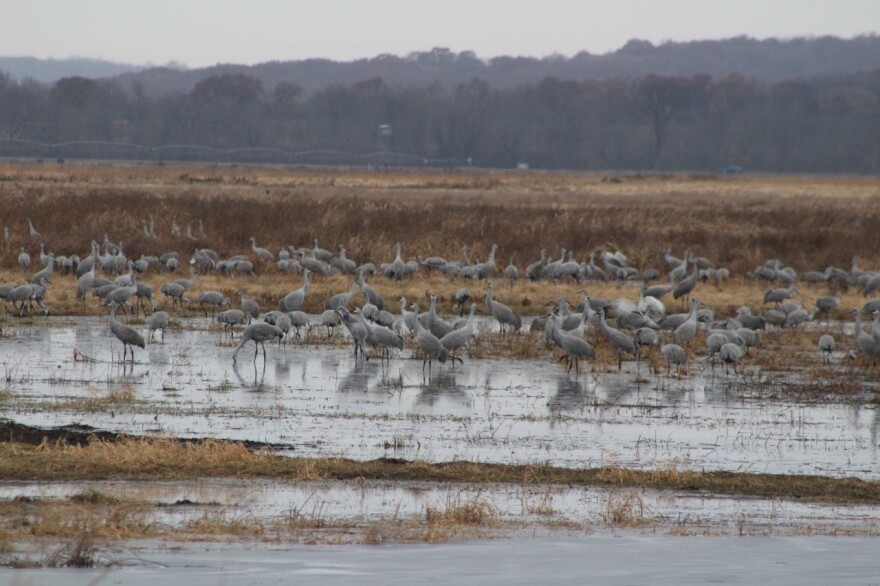There’s a billmoving through the Wisconsin legislature that would create a hunting season for the sandhill crane. The long-necked migrator with a haunting call is currently protected in Wisconsin, but a republican-authored bill could change that.
Not everyone is thrilled about the crane’s rebounding population — especially farmers who grow corn, which cranes eat. Last week, the Senate Committee on Sporting Heritage, Small Business, and Rural Issues heard testimony on the proposed hunt.
Wisconsin’s Green Fire is one group that testified. The nonprofit advocates for science-based natural resource management and is made up of many retired Wisconsin DNR scientists and specialists.
Executive Director Fred Clark explains why the group did not take a formal position on the proposal, but instead asked legislators to consider a series of factors before authorizing the sandhill crane hunting season.
“Cranes are somewhat unique among migratory bird populations in that they are very long-lived and they have a slow reproductive cycle,” Clark says.
Many crane don’t begin breeding until age four or five, and Clarks says their reproductive rate is relatively low.
“That means that hunting can quickly reduce a crane population to levels that could become unsustainable,” Clark warns.

Wisconsin’s Green Fire laid out other factors they hope state legislators will consider, including:
- There is no sustainable level of fall hunting that will significantly reduce spring damage to crops from sandhill cranes. Crop damage from cranes occurs primarily in the spring when the cranes feed on the germinating corn seeds after planting, however just as with all other waterfowl, recreational crane hunting is limited to late summer or fall.
- If a Wisconsin hunt is approved, the quotas, timing, and other elements of a hunt structure must be coordinated through the Mississippi Flyway Council in conjunction with our neighboring states in accordance with the Migratory Bird Treaty Act.
- Setting conservative, science-based quotas is essential. Population modeling and experience in other states suggests strongly that harvest rates greater than 4% are high enough to create risks of long-term population declines.
Over the last six weeks Wisconsin's Green Fire held a series of preservation conversations around the state to learn what citizens had on their mind. Clark says sandhill crane management is one of many topics people raised.
“I would say the one topic that comes up consistently — that cuts across all those issues — is people’s concern that our traditions of conservation governance is being threatened. We’re in uncharted territory today with this continuing and escalating controversy with the role of the Natural Resources Board and almost every issue being litigated,” Clark says. “I think a lot of people...are concerned that our traditions of solving these issues civilly, and in a way that is constructive and ultimately sustainable is threatened, and will make it impossible for us to manage natural resources the way we have in the last 100 years. Everyone’s concerned about that future.”
The senate committee voted 3 to 2 to recommend the sandhill crane hunting season. The legislation is now up for a full senate vote.
Have an environmental question you'd like WUWM's Susan Bence to investigate? Submit below. (If the module isn't appearing, please refresh the page.)
_







